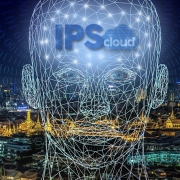We often hear about artificial intelligence, but what it is and what its real potential is, is not always clear. The purpose of this and the following articles is to try to clarify and define its boundaries, up to its practical applications and advantages.
Let’s start with intelligence
First, we should try to define what we mean by intelligence, and this is far from being a simple task. Let’s start with the etymology of the word: intelligence comes from the Latin intelligere, which means to understand, to comprehend. We can see it as the process of passing from not knowing how something works to its understanding. I don’t think anyone could object that Newton used intelligence to understand what lies behind an apple falling to the ground, and he used intelligence to understand that its dynamic is the same as the dynamic of the moon rotating around the earth or the latter around the sun. But if I asked you if a newborn needs intelligence to learn how to walk, what would you answer? Or if our dog approaches and licks us because he understands that we are sad or suffering, is that intelligence? I am sure that for these last two questions, I would not have the same answer from everyone. This makes us understand how intelligence is a concept that can be interpreted in different ways and different people can decide to define more or less wide boundaries
We could go even further and ask ourselves if the living beings, who made an effort to move out of the water and “learn” to breathe the air, did so thanks to intelligence. In this case, I believe that almost everybody would say no. Because it is an evolutionary process, dictated by mutations and random facts, which brought aquatic beings out of the oceans after many generations. But even primitive man has learned to cook food thanks to random events, as scientists today can discover and learn something thanks to chance or more or less fortuitous attempts. Therefore, could we see the whole evolving living beings as a kind of global intelligence? I don’t want to try to answer this question, but I wanted to go up to this extreme to try to get rid of the prejudices we could have about the meaning of a term and be able to grasp many more facets.
Man-machine comparison
One feature that still surely distinguishes us from machines is the awareness of what we know and what we do. This does not mean that we are aware of everything we do (especially someone, you’d say…). Think of actions such as walking, taking an object with your hand, and so on. These are actions behind which there is no logical reasoning, that would give us a method to elaborate the way to coordinate thousands of muscles and carry out such a complex act. In fact, it seems very simple, we don’t even have to think about it. How many of you happened to be driving your car on your way to work and at some point wondering how you got there? As if your mind had done everything except thinking about driving and where you were going. We can say that we worked on autopilot. But it certainly wasn’t like that the first time you got behind the wheel, the process was much heavier, you had to understand, think, and learn. This denotes how many skills, that do not require reasoning, have become so after a learning process. Therefore, we could say that driving a car requires intelligence. In the first phase, to create the procedure in our memory and then to be able to use it, allowing us to manage all the sensory inputs involved and obtain the result of getting to work safe and sound.
We can summarize that in living beings there are innate abilities (developed through evolution), others that can be learned and transformed into automatic behaviours, and qualities that require the ability to find logical connections between things that apparently seem disconnected (they are those that allow us to discover new things). The time has come to ask ourselves which of these characteristics are typical of machines as well. The answer is all of them. This does not mean that machines can equal human beings in all their intellectual abilities, we are still extremely far from this goal, but it means that they are able to imitate the human mind in some of its capabilities.
Innate abilities and learning
We can look at a machine running an algorithm (a procedure of logical instructions) as an innate ability. Meaning that the computer, as a whole of hardware and software, was built and programmed to perform a certain task. Unlike human beings, it did not autonomously evolve to become what it is today, but it is the product of the cultural and technological evolution of humans. This feature has great potential if we think that it allows machines to obtain results that human beings cannot achieve. This is so thanks to their great speed, to the fact they can have powerful sensors and operate without resting. Let’s think of the security systems that read your retina and compare it to samples in fractions of a second; or to navigation systems that calculate the fastest route for distances of thousands of kilometers in few seconds. These are things that humans are not able to do or even learn, because our characteristics do not allow it. Maybe it would be a bit of a stretch to call this intelligence, but we could see it as a transfer of the human intellect into the capabilities of the machines. Again, I want to dare and try to define the human-machine sum as an entity a little more intelligent than the human alone.
What is really interesting is that a machine is also capable of learning and can do it in a similar way as the human brain. One of these systems is called artificial neural network. In the next posts we will briefly retrace the evolution that in the last century has led us to this point. We will then go into a little more detail, explaining the functioning of these neural networks and how far they have approached the brain’s capabilities, to conclude with the practical advantages they bring to the industrial world.

